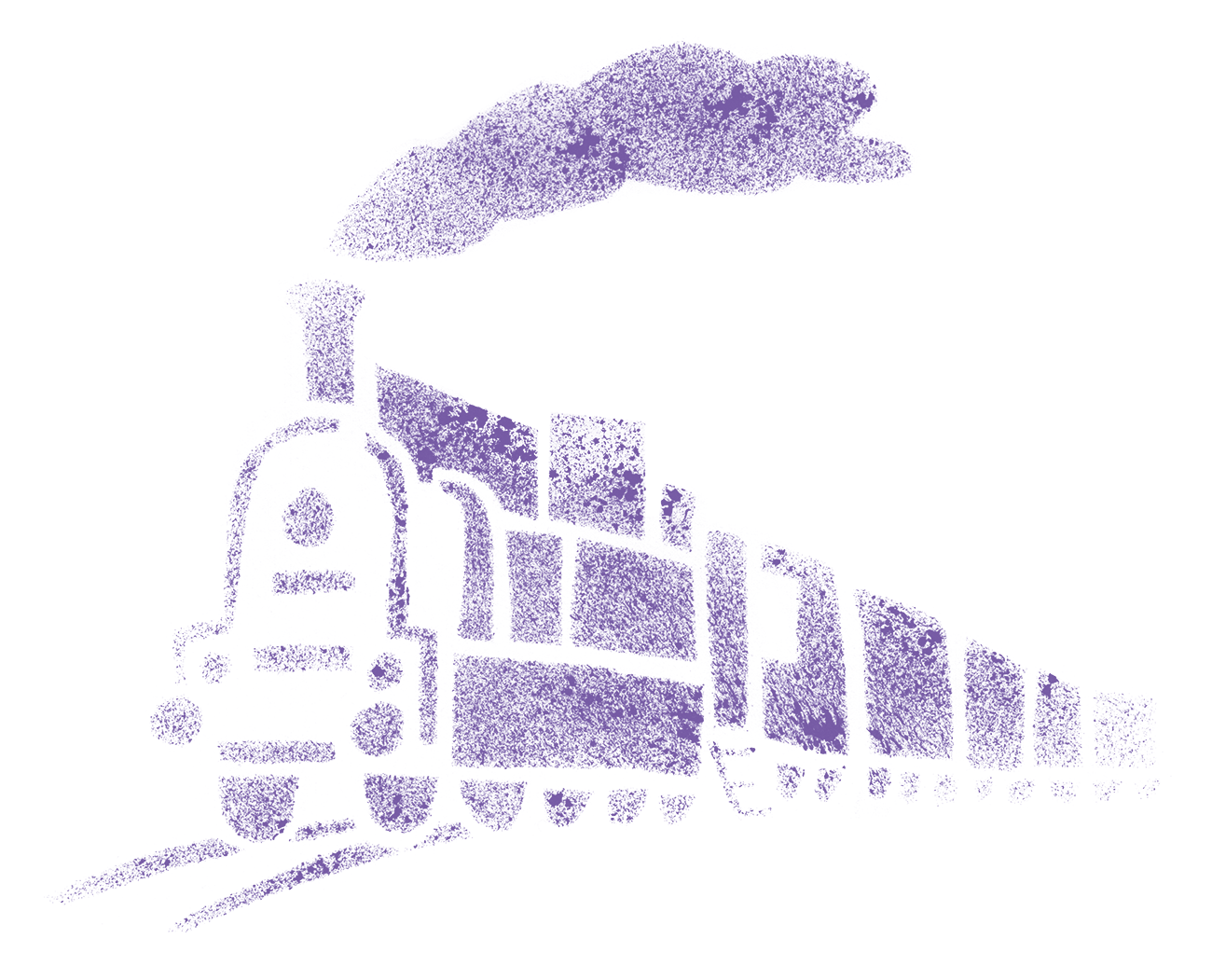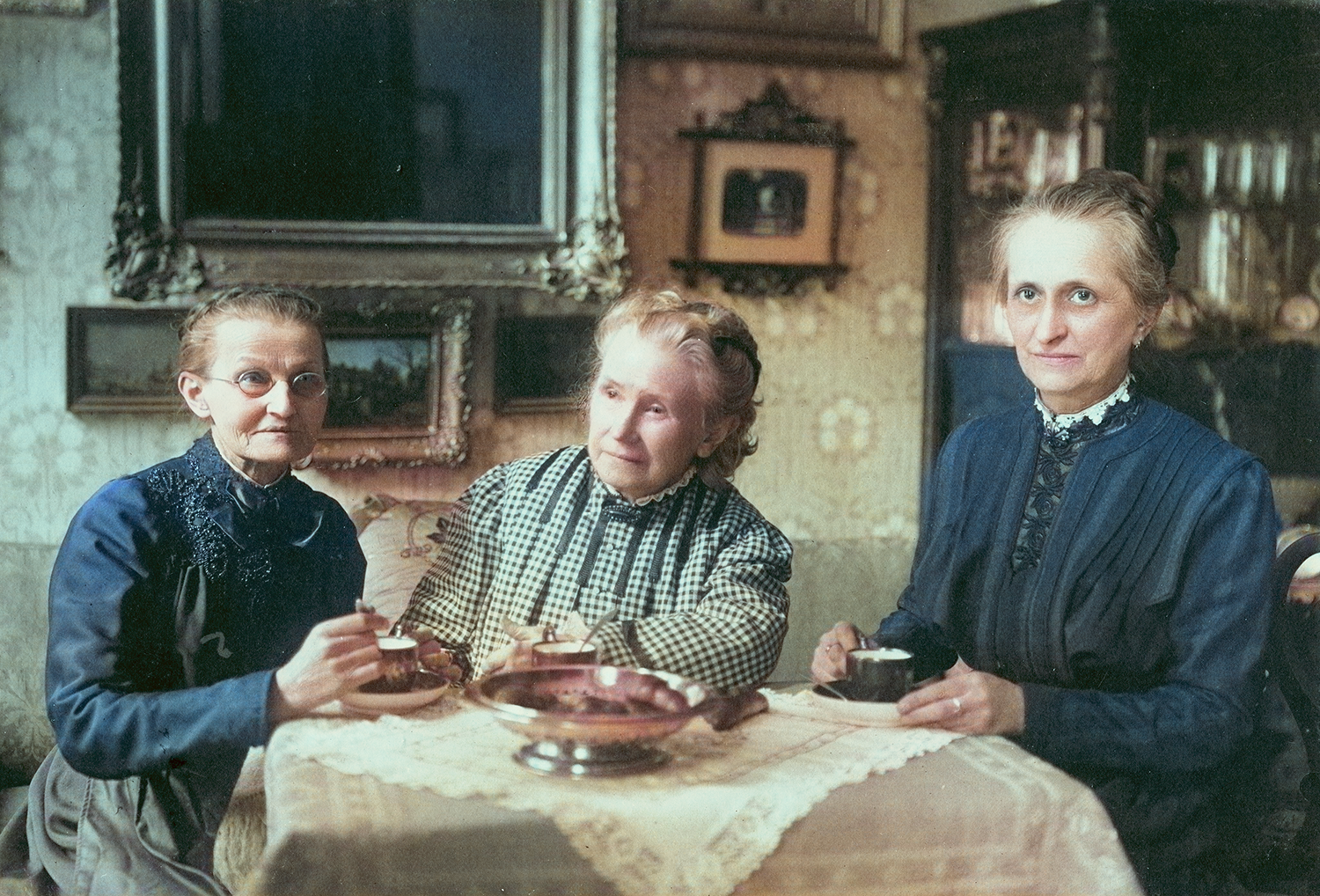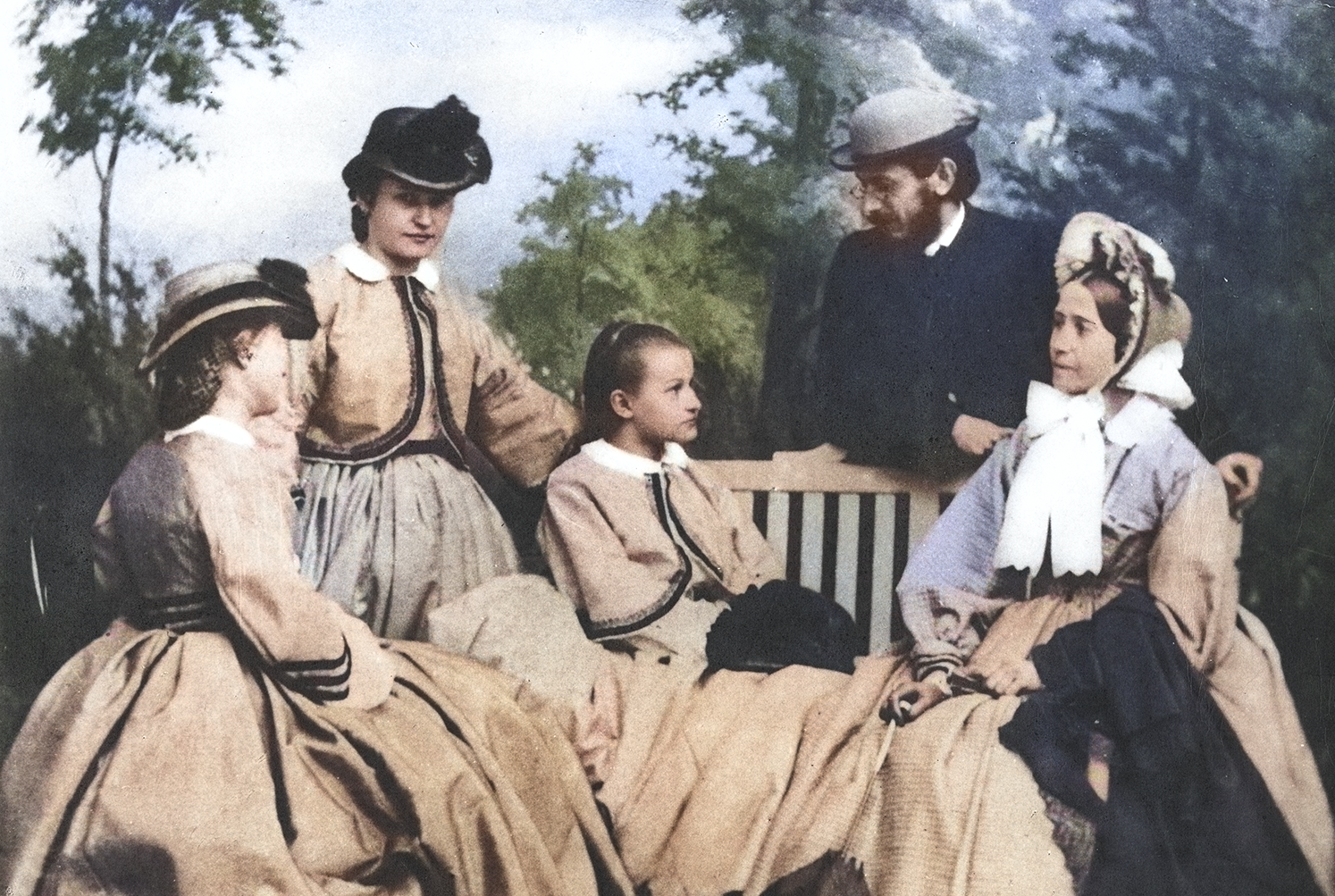▲
Eliška Krásnohorská (centre) at the table with her sister Bohdanka Pechová (left) and her niece Gabriela Dornová (right), Literary Archive of the Memorial of National Literature
Women Can
Who Was Eliška Krásnohorská?
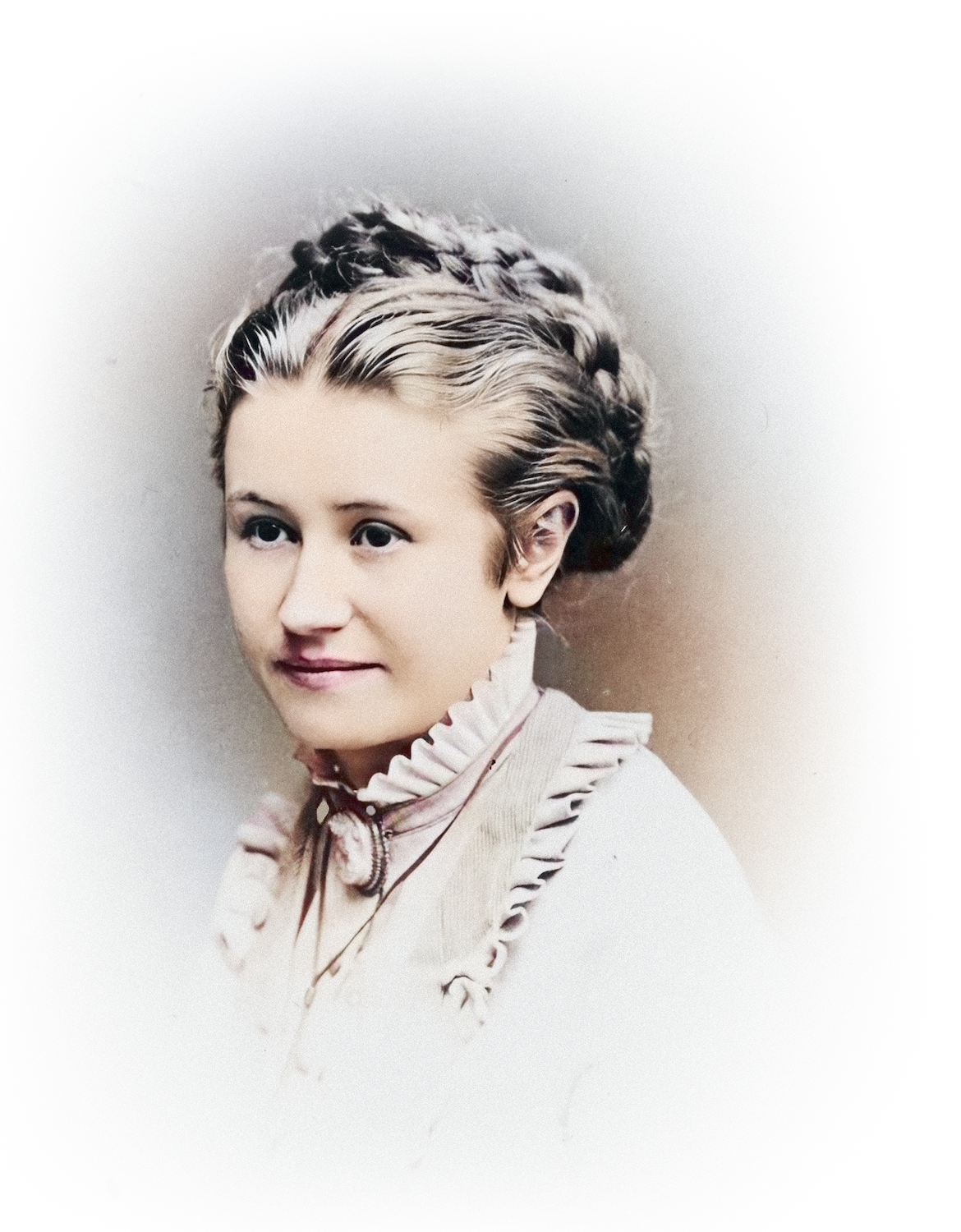
- She was born on 18 November, 1847 in Prague as Alžběta Pechová.
- As the seventh child of a craftsman, she had little prospect of a decent life. For girls of her origin, the only acceptable life path was marriage. However, Eliška Krásnohorská was prevented from doing so by rheumatism, which deformed her joints. As an unmarried woman, she was in danger of remaining dependent on her married siblings, likely becoming their domestic help.
- At the age of twenty-seven, however, she moved away from her family with an elderly roommate in order to become self-sufficient in literary work.
- She read, attended lectures by Náprstek’s American Ladies Club (or American Club of Bohemian Ladies) and other educational events open to women, driven by a desire to study, which was forbidden to girls at the time.
- She chose a life path as a poet and writer, a librettist, which paid little and predisposed her to a modest life. But by freely choosing a profession she enjoyed, she was able to make her own decisions.
- Together with Karolina Světlá, she founded The Women’s Production Association (Ženský výrobní spolek). She established the first girls’ grammar school in Central Europe – Minerva. She was also an instrumental figure in allowing girls to study at universities, thus deciding not only for herself, but also for thousands of women. , Thanks to her courage, tenacity and perseverance,the path to the highest education has been opened to them.
- She was not afraid to break with the conventions of the time by attending cultural events unaccompanied by a man, she moved in public space and performed independently. She showed other women the possibility to entertain themselves independently, without male supervision or accompaniment.
▲
Family photograph of the Pech family (Eliška Krásnohorská in the middle), Eliška Krásnohorská Archive, Gender Studies, o.p.s.
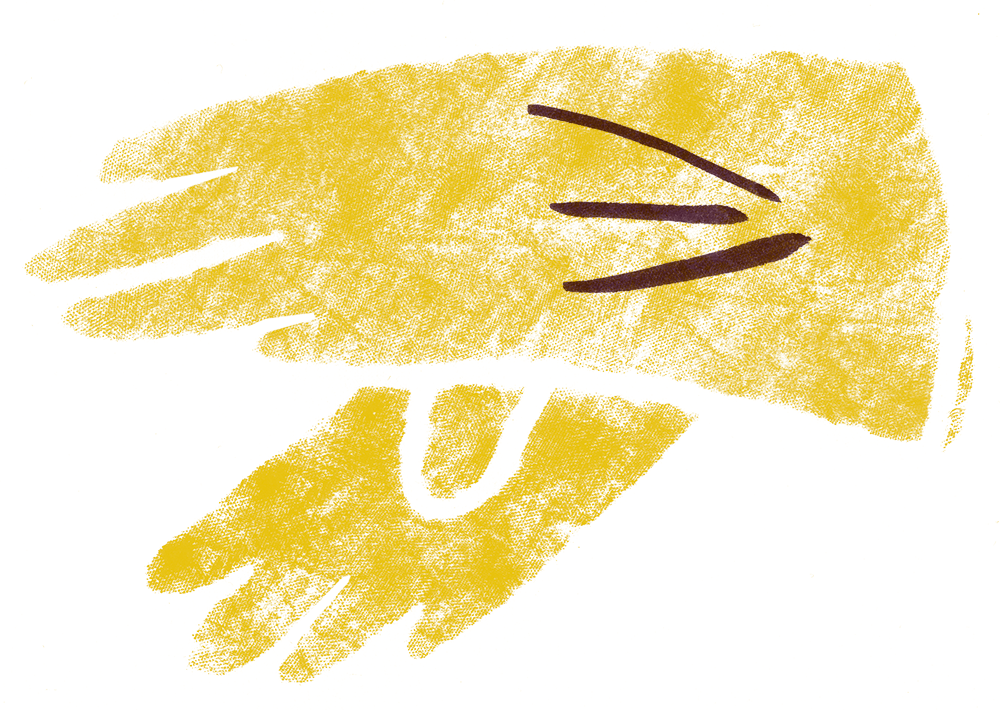
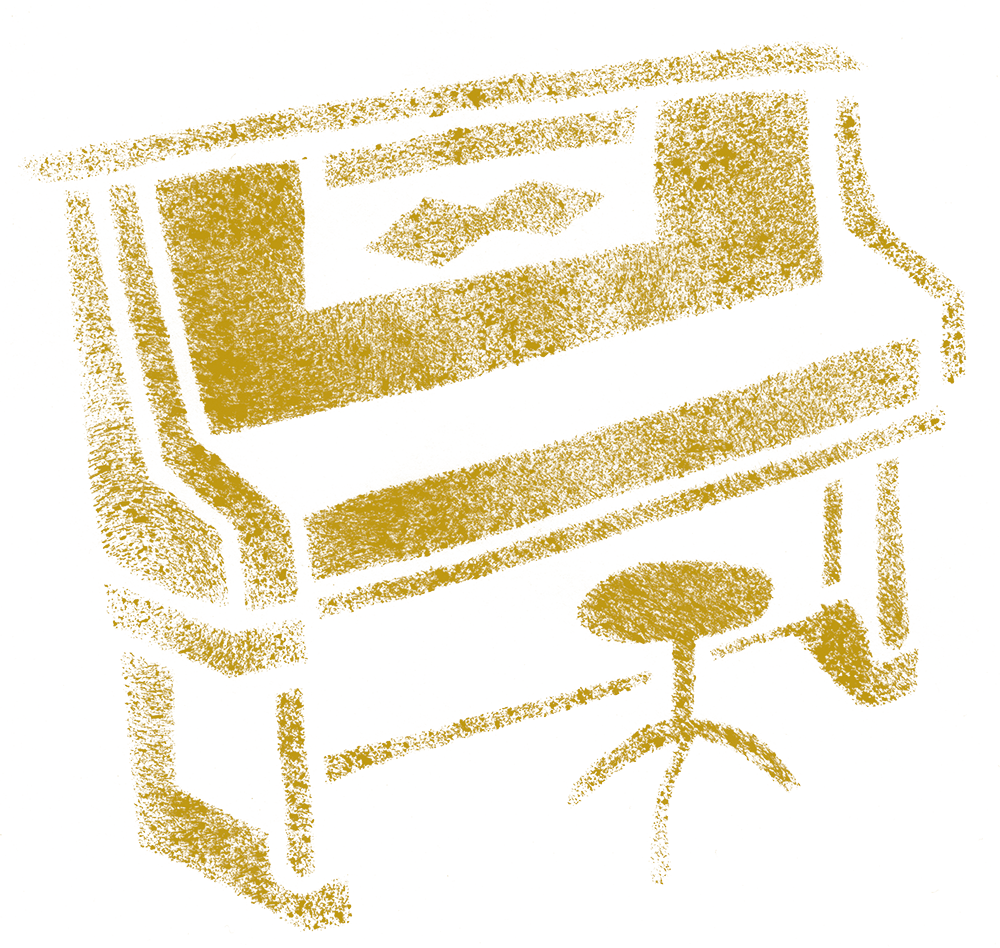

“And the closer the train got to Prague, the clearer my mind became. I ceased to be grieved by my mother’s opposition to my departure; I understood that every generation has its opinions of its time, and that my mother also, quite naturally, conceived of the vocation and duties of a girl in the old-world way, with resentment and distrust of everything that threatened the order and order of the former with the specter of ’emancipation,’ of which she regarded Karolina Světlá as the representative, attributing to her, not without reason, the chief influence on my decision.” (Eliška Krásnohorská, What the Years Brought, p. 6)
